
Warning: the following post contains spoilers for both the book and TV adaptation of “Little Fires Everywhere.”
Hulu’s TV adaptation of the 2017 novel Little Fires Everywhere, authored by Celeste Ng, has just wrapped up its first season, and the finale has left me thinking—and not in a good way. I can’t say I feel particularly satisfied walking away from this show, and I haven’t quite wrapped my head around exactly how I feel about it. I can’t help but think that, overall, there was something missing. In fact, I left this limited series feeling the same conflicted, unsure, and sad disappointment as I did when I finished the book.
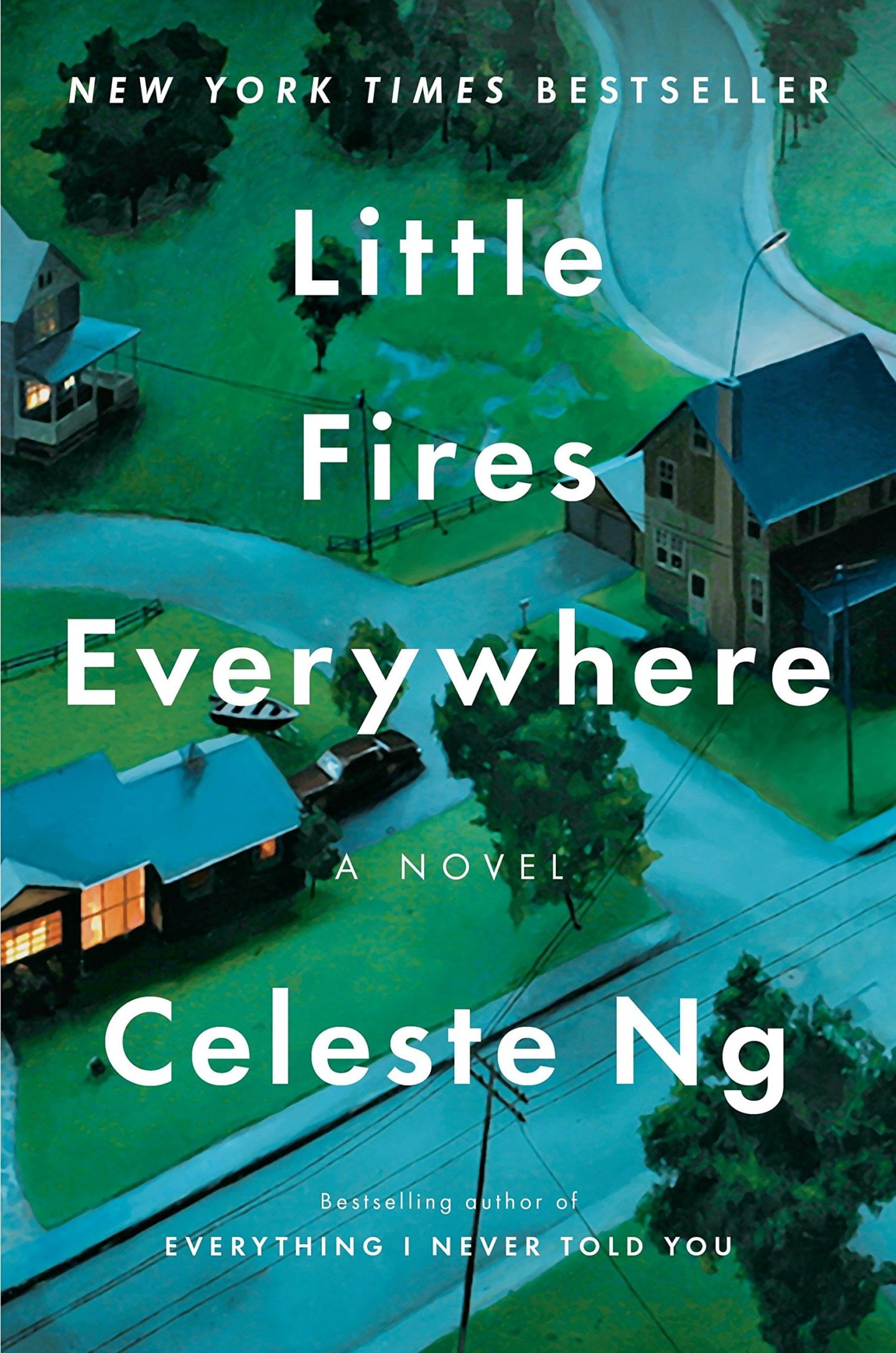
Little Fires Everywhere is a story set in the 1990’s in Shaker Heights, Ohio. It centers around the Richardson family, which includes: Elena (Reese Witherspoon), a mother, wife, and journalist; Bill, a devoted husband, father and lawyer; Lexie, a high school senior who’s quest for perfection and getting into Yale may very well be her downfall; Trip, a jerk-jock type high school junior; Moody, the shy sophomore opposite of his older brother; and Izzy, a freshman full of rage and teenage angst, she is the black sheep of the entire Richardson family and Shaker Heights’ high school. The Richardsons are wealthy, and have been in the town for many years. They have power, they have status—they have everything that the Warrens don’t. The Warrens are comprised of two people: Mia, an artist and single-mother, she can never stay in one place too long; and Pearl, an enigmatic, smart, and sweet sophomore who’s devotion to her mother will always allow her to pack up and move whenever she has to, even if that means never having a permanent home and sleeping out of a beat-up-car from time-to-time. When the Warrens come to Shaker Heights looking for a place to stay, Elena Richardson is the one who gives them their lease; she wants to help this mother-daughter duo, and we’re led to believe that the pair of mothers might actually become friends. That is, until Mia meets Bebe Chow—an undocumented, Chinese immigrant who gave up her newborn daughter one night out of fear and desperation—and that is when it all falls apart. Nothing in Shaker Heights is what it seems, and no one ever truly knows what goes on behind closed doors. The book opens up with the Richardson house burning down, and from there, Ng brings us backward and through the events that led to this fire.
I felt conflicted throughout the whole story. Where was the thriller? Where was the heated, domestic drama I anticipated? Where was the plot? What was the plot? I soon realized that this book had been talked and categorized incorrectly and unfairly, and while I know I am in the minor in this case, I felt as though that specific marketing really did the novel an injustice. It wasn’t a bad read, but it wasn’t a great read, either. The slow-build wasn’t enjoyable, and I didnt’t particularly care for the drama. I felt as though so many things were painted incorrectly, and in such a negative way (I’ll get into that later). There were so many different storylines throughout, and I didn’t find pleasure in piecing them all together to come to the final conclusion: that Little Fires Everywhere, in all its entity, is a story about race, class, and privilege.
Here’s the thing I wish I knew going into that book: that Celeste Ng’s writing style was nuanced and subtle. The characters, all of them, were irrevocably flawed, and the grey areas of life were prominent throughout. This story was not meant to be an in-your-face, glaringly obvious kind of read. It was supposed to be a slow, dramatic, pulsating build until the climax in the end. Had I known this going into the book, I probably would’ve reacted to it all differently. I truly wasn’t able to find what everyone was raving about, so when I found out that Reese Witherspoon and Kerry Washington were teaming up to make this sensational novel into an eight-episode installation drama, I couldn’t contain my excitement. I felt as though I was finally going to be able to see everything I missed in the book, and understand why everyone loved it so much.
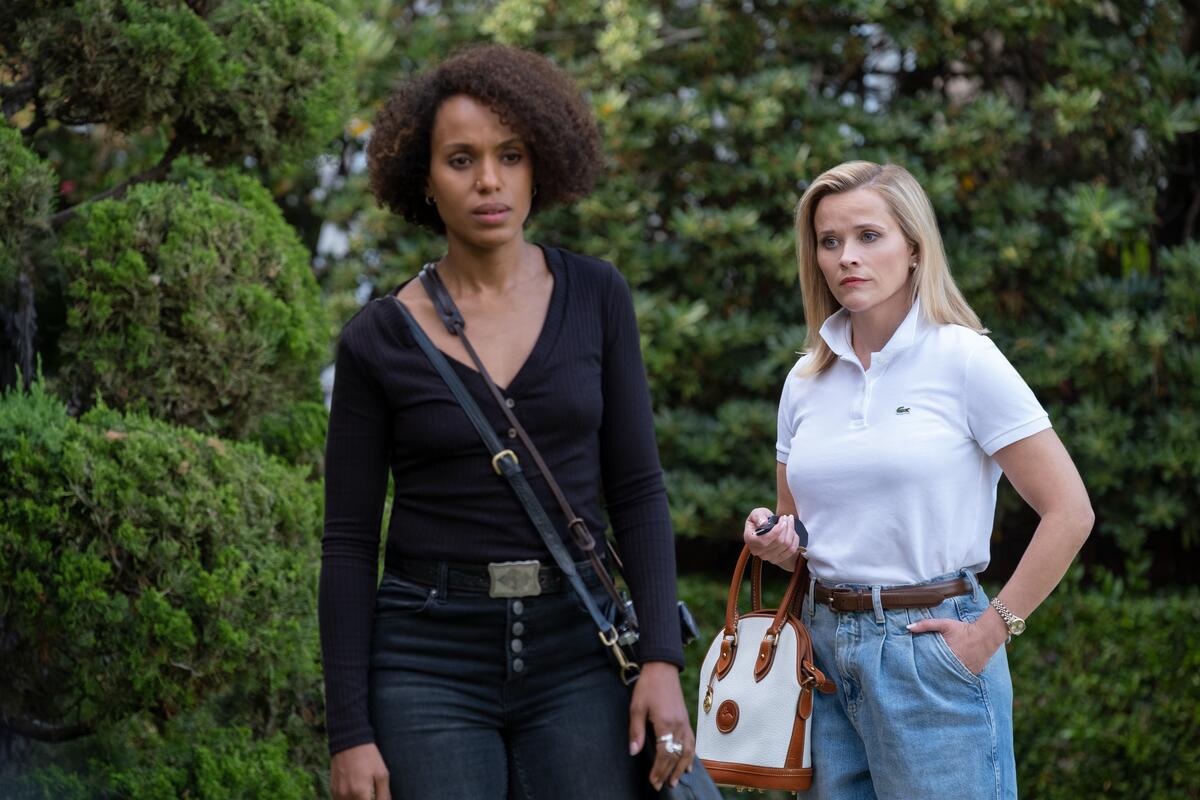
And yet, and yet… here I am today, a day after finishing Hulu’s limited-series installation of Little Fires Everywhere, feeling exactly the same as I did when I finished reading the novel.
Let me preface by saying this: the acting in this, from every character, is phenomenal. Had the performances been any less than stellar, I probably wouldn’t of finished this one to the end. That was what kept me engaged, not the storyline itself, and maybe that’s because I already knew what was going to happen, I don’t know.
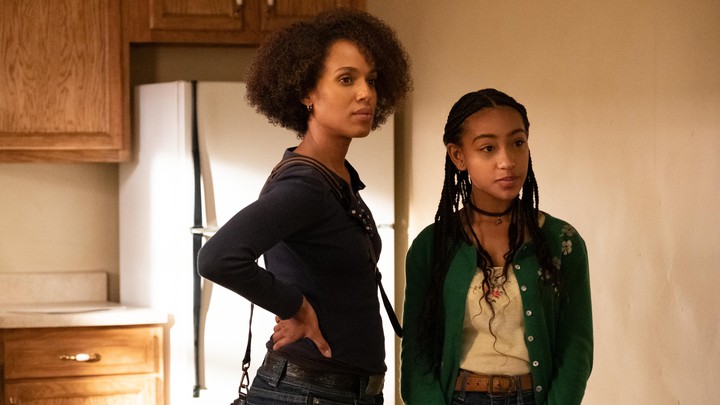
Image via Google
In the book, we’re never told what race The Warrens are (though it’s assumed they’re white), and I think that the choice to make them black was a good one, especially for the sake of visually pointing out the overall message of the race, class, and privilege divide. However, this is where I believe it fell apart. It wasn’t enough for us to see the very obvious divide between the Richardsons and the Warrens, it had to be spelled out for the audience, letter by letter. In the show, whenever there was a conflict or fight, the characters would verbally point out the differences between them. Unlike the show, in the book, the depiction between classes was more artful and subtle. It was there, but it was something unsaid, something for us to figure out on our own. I don’t think the show did the book any justice in this department since I believe the whole purpose of the way Celeste Ng wrote Little Fires Everywhere was to make the audience think about all of these troubling topics; which also brings me to my next problem.

The story is about race, we know this. We’ve known this from the beginning, and yet the idea of what makes a good mother and what it takes to be a mother is also something that every character keeps circling back to. I’m not a mother, and I won’t pretend to know what it’s like to be one, but what I will say, though, is that I think all mothers struggle in some way, shape, or form. All parents, at the end of the day, want to do their best, and I think in all cases, they love their children the best way they know how. Now, that way may not always be good or fair and what’s right for a child, but I do think that even the worst of parents, the ones who commit the most egregious and atrocious acts, are still loving their children the best they can in their own, f*cked up way.
We see Mia repeatedly say [referring to Pearl] with tears in her eyes, things such as: “I am her mother,” and, “I am your mother, you came from me.” We see Bebe Chow shriek about the baby she mothered and lost, screeching, “that’s my baby!” When she finally lays eyes on the daughter she gave up again for the first time. We even see Elena, as tightly wound and controlling as she is, remind her children to listen to her over and over again because she is their mother and “knows what’s best.” Now, I’m all on board with this idea, the idea that challenges us to consider the grey areas in life, to think about the inevitable that can sometimes happen; that parents’ actions shape their children—but I could not get on board with the way surrogacy and adoption was explored, in both the book and show.
My mother was adopted when she was three months old, so maybe I’m a bit biased, but I thought the exploration of the adoption process was utterly atrocious. Yes, Bebe Chow is May Ling’s birth mother—but she gave her up. Yes, it was out of desperation and fear, but in that moment, she honestly made the bravest choice of all. She wanted to give her daughter a better life and knew she couldn’t, so she let her go, despite how much it hurt. I’m the oldest of my siblings, and my mom told me that when she got pregnant with me, she realized what a selfless act her birth mother did by carrying her to term and putting her up for adoption. She said that there were times in her life growing up when she wondered why her mother didn’t keep her because it’s a natural thing that happens a lot of times in adopted children, but she also said she was thankful because of the parents it gave her. She’s never looked at her mother or father differently. They may not be biologically related to her, but she is still their daughter, and they are still her mother and father. So needless to say, I was incensed when suddenly Bebe decided she wanted her daughter back and took the case to trial. Much like the McCulloughs—the husband and wife who are in the process of adopting May Ling—couldn’t have children of their own, my mother’s adoptive parents couldn’t either. During the trail, Linda McCullough cried out, “I may not be her birth mother, but I am her mother!” I felt that, I really did.
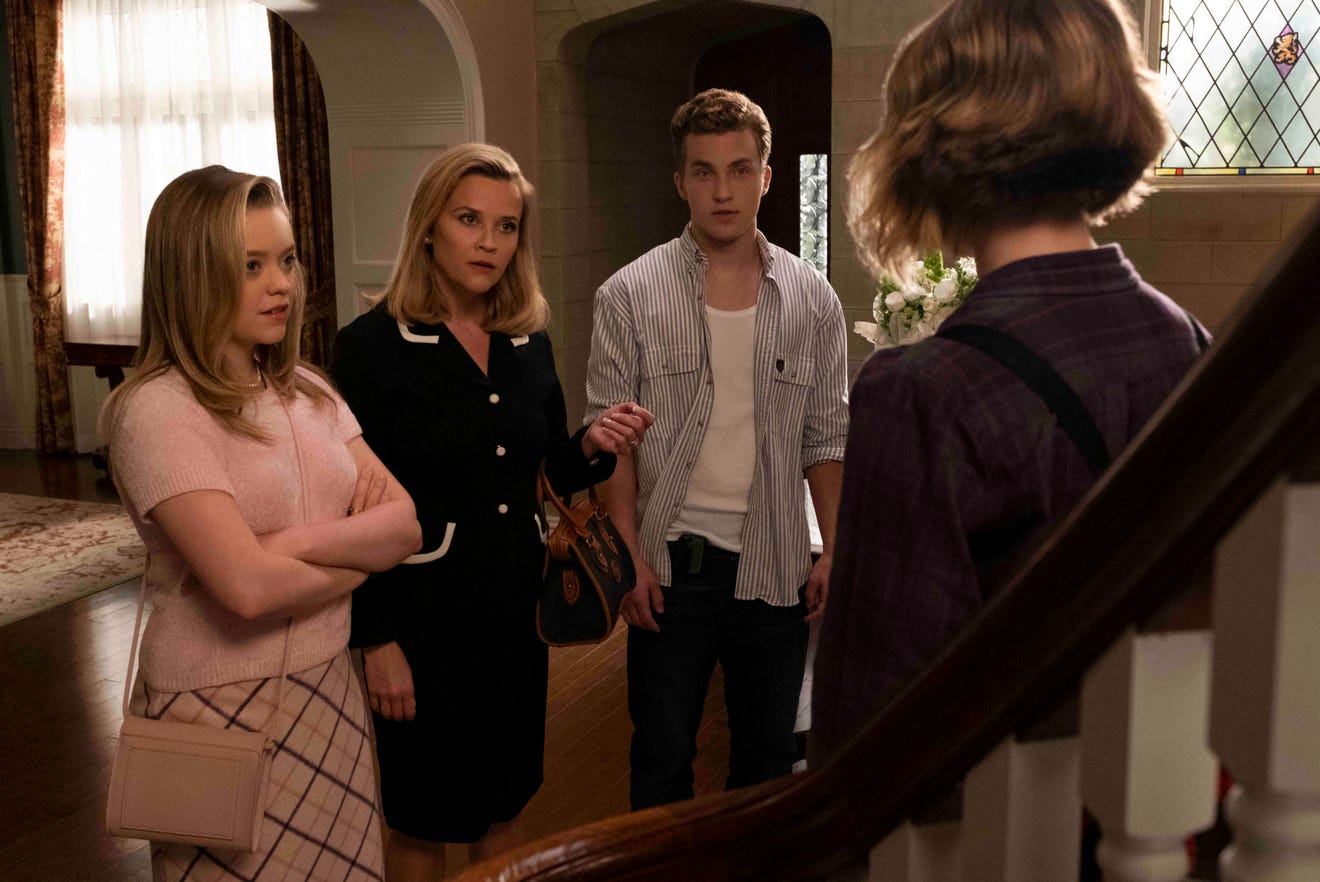
With her back to us: Izzy Richardson
Image via Google
Here’s my problem with this whole thing: in life we all have to make decisions, and those decisions come with consequences that we will have to deal with and carry for the rest of our lives. You can’t make a life-altering decision and go back on it after you’ve realized you’ve made a mistake, you have to deal with it. Again, I’m a little biased, but this truly painted the whole idea of adoption horribly, and it did more harm than good.
Which brings me to my next issue with Little Fires Everywhere: surrogacy. The exploration of surrogacy and legitimacy of motherhood clashed in an epically horrible way. Again, just my opinion. Surrogacy and adoption are both equally expensive, but the fact that they both give people who can’t have children on their own for whatever reason a chance at being a parent is a beautiful thing. When we learn that Mia was a surrogate who basically kidnapped Pearl for a couple incapable of conceiving, I once again felt outraged, both when I read the book and watched it in the show. It wasn’t enough that Mia got paid handsomely for carrying a child for this woman who couldn’t, she had to tell them that the baby died so she could keep Pearl all to herself. In my opinion, this also did the legitimacy of surrogacy a major injustice. It didn’t show the greatness that can come from being a surrogate, it depicted what was essentially the idea of a sperm donor and “mother” whose “child” is ripped away from them. I get it, the couple Mia surrogated for didn’t exactly do the run-of-the-mill IVF treatments, but still.
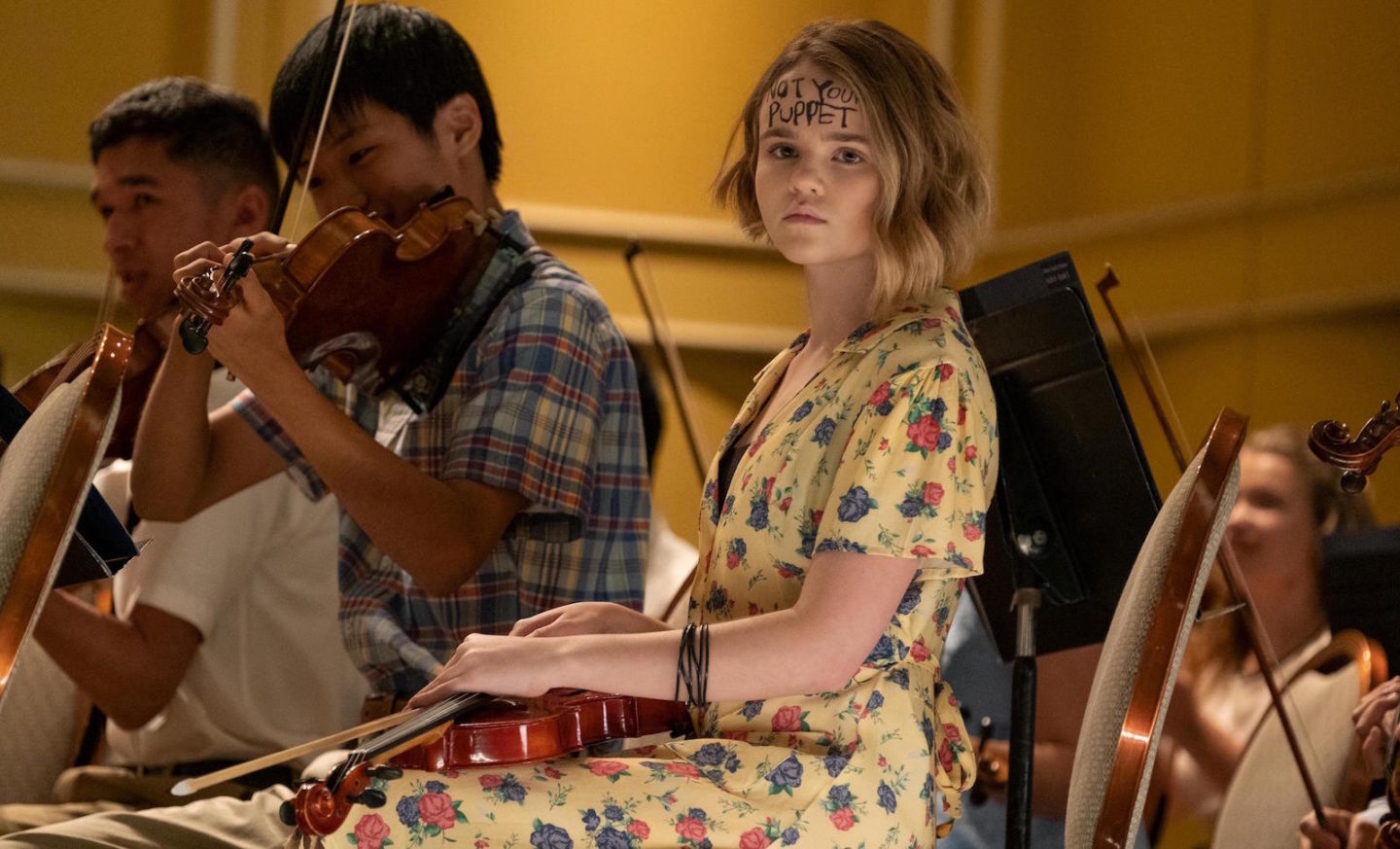
Image via Google
Throughout all of this, the one constant was my empathy towards the teenagers in different ways. I found Lexie Richardson the most annoying of them all, but there were even parts where I could understand why she was struggling and crumbling under the pressure to be perfect and keep the not-so-perfect parts of herself hidden. She makes extremely dumb choices, ones that had me screaming on the inside, but she is still a kid, after all. Izzy’s abrasiveness was so reminiscent of other teenagers; they think they know everything and have it all figured out, when in fact, they know nothing, because how could they? Maybe some know more than others, and that certainly comes from living conditions and the way they’re raised, but there isn’t a teenager in the world who has it all figured out. (Come to think of it, none of us really do, in the end.)
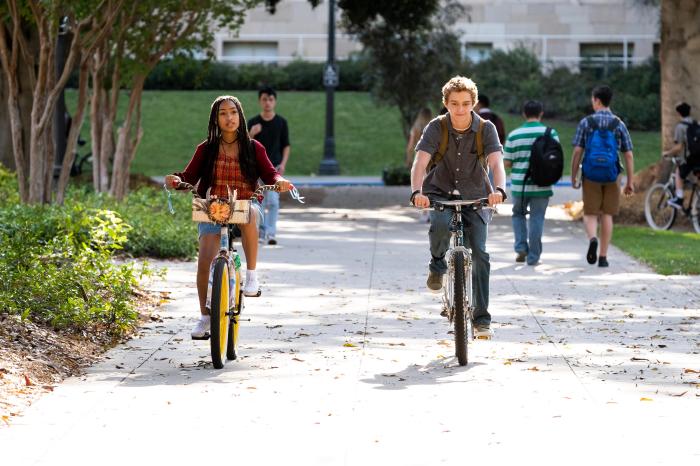
Image via Google
IMO, Pearl, played by Lexi Underwood, was the standout star of the entire show. She showcased the struggles of being a teenager flawlessly, and I could feel her pain in her cries and screams when she fought with her mother. My heart broke for her when she longed for some stability, even the tiniest bit, in her chaotic life. You could see Pearl’s desire to know more about her birth father, her desire to keep her mother happy, never asking for anything at all, really. She demonstrated a teenager struggling with the idea of growing up and learning that parents can hide things from you and mess up.
In the end, when everything is revealed and (almost) all the secrets come out, the Richardson house is burned down from an accelerant inside the home, equating to, what is essentially, little fires everywhere. These little fires are started by Lexie, Trip, and Moody, mere seconds after Izzy has run away. They do this because they’re terrified of becoming their mother, or what they’ve already become. All of this was an unexpected twist from the book that I appreciated. In the novel, Izzy is the one who sets the fires. However, like in the show, she does run away. Mia and Pearl leave town, and for the first time ever, Mia offers Pearl the opportunity to meet her birth father. When Pearl declines, she asks for another destination instead: a chance to finally meet her grandparents, the people who disowned Mia once they found out she was carrying a baby that wasn’t hers. In the case of Bebe Chow and May Ling, the judge rules in favor of the McCulloughs keeping the baby, but that doesn’t stop Bebe. No. Instead, she breaks into the McCullough house and steals her daughter—AFTER being ruled against in a court of law.
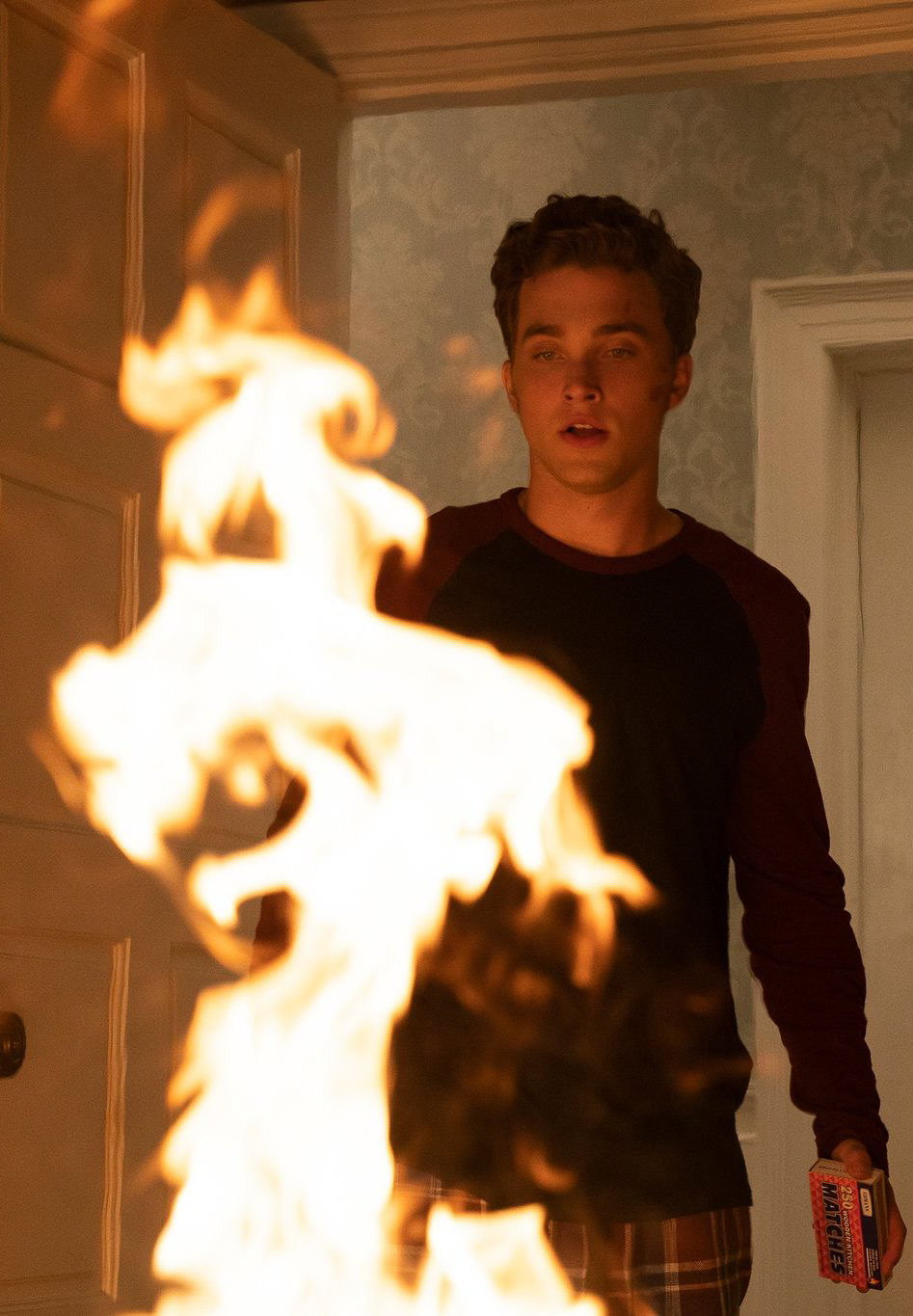
What really irritated me, though, was the fact that the only woman who had to answer to her actions and finally face the consequences was Elena. She’s lost her home, Izzy, and her entire world has just fallen apart. We see her finally recognize that she very well may be the root cause of her family’s issues, her daughter’s rebellion, and the little fires inside her home. Elena was flawed, very much so, but so were Bebe and Mia. All three women equally should have to deal with their actions. Correct me if I’m wrong, but I think it’s safe to say that stealing a child is frowned upon in any and all cultures. Mia took money from the Ryan family, whom she was surrogating for, told them that Pearl had died, and fled so she could keep Pearl all to herself in the end. She’d been hiding money—hundreds of thousands of dollars of it—and forcing Pearl to live on the run, and out of a car with her out of fear of facing her actions. She, quite literally, ran away from them. In the end, Mia and Pearl essentially rode off into the sunset, and Pearl finally gets to meet her grandparents for the first time. And don’t even get me started on Bebe Chow. She may be May Ling’s birth mother, but you cannot, anywhere in America, go around and kidnap a child because you gave birth to them and believe they belong to you in the end, no matter what. So she gets her happily ever after? Mia and Pearl are fine? What?!
Again, maybe this is because the overall theme here is about the differences in race and class, but it felt unfair to have characters who were all so flawed, and have only one of them answer for their actions. All three of them have made life-altering decisions, and it doesn’t seem like Mia and Bebe have to live with the consequences. I feel like the author could’ve gotten the point about the divides in society across better had she not picked surrogacy and adoption as a way to do it. The surrogacy was supposed to be legit, and the adoption was fair; the McCulloughs didn’t steal May Ling from Bebe, they ended up with her because they were in the process of trying to adopt a baby already.
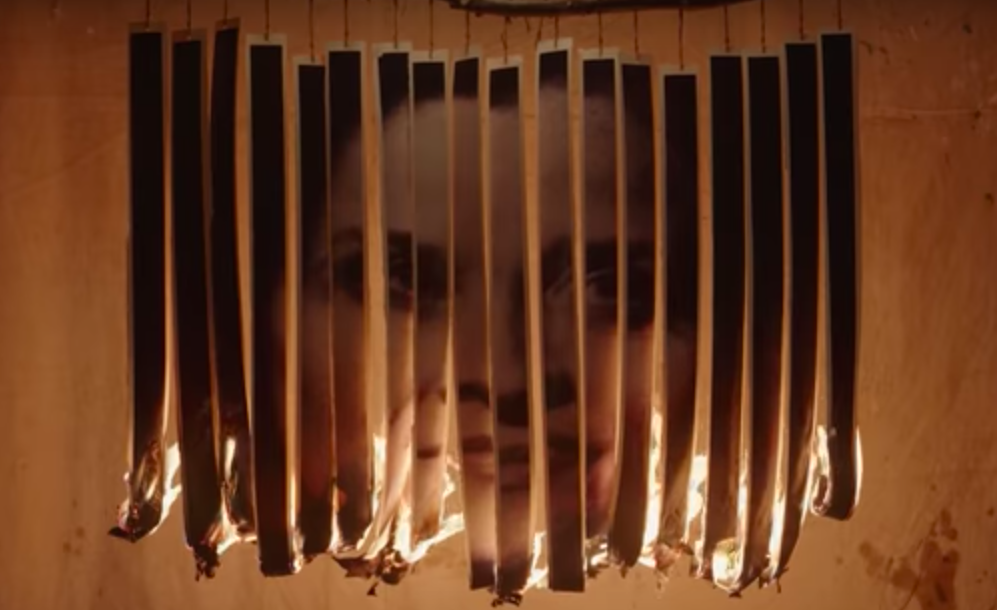
And alas, we circle back to my biggest problem with this all: what is this story really about? We know it’s about the differences in race, class, and privilege. We know it’s about the struggles of motherhood, and doing what’s right. We know it’s about setting fire to everything that is wrong in the world in hopes of being able to start over again—we know all of this, but none of it ever really seemed to hit the bullseye when it came to broaching these subjects. Had the themes been more subtle, I probably would’ve enjoyed this show more than I enjoyed the book, and found pleasure in piecing together all of it. In the end, Little Fires Everywhere, both the book and TV show, left me with more questions than answers, and I can’t help but feel unsatisfied.



honestly, this is the whitest response to the show i have ever read
seems like you kinda missed the point of the series
also bibi chow did not “selflessly” give up her child; both she and elena had post-partum depression. the parallel was supposed to illustrate how elena had a support system in place when bibi didn’t. maybe you feel the need to defend your mom’s with adoption, but it’s not relevant to the point of this story
I can’t speak for the author of this blog, but I don’t think this review was that off the mark. Bibi’s situation was meant to be a challenging grey area and it was. You’re made to sympathize for Bibi as a mother and we do. What I didn’t like is how they portrayed the aspiring adopting mother as the villain at the end, and made Bibi’s actions of stealing the child back seem heroic. In no way is a woman who literally saved a child’s life by taking it in as her own after it was *officially* abandoned by the mother, a villain. The compromising struggle of feeling for both Bibi and the aspiring mother was great…. Until the end, when they highlight Bibi kidnapping her because NOW she’s ready to continue being her mother, as a “good” thing and a happy ending.
Bibi’s story can be debated for hours, but what I think they really dropped the ball on was the fact that Mia was literally just a psychopath. She stole a child that wasn’t hers, lying about its death to the parents. Devastating two people for her own selfishness. She lies to her daughter for her entire life AND forces her to live in poverty while she has the means to make an extremely comfortable life for them. She then exercises her financial means for Bibi, all to feed her own guilt, again while her (stolen) daughter struggles.
The cherry on top is the little things she does, like snooping through someone else’s house and even stealing from it. Literally none of those issues have anything to do with race, she’s simply a shitty person by nature, regardless of her ethnicity. I personally agree with this post, that they didn’t do a phenomenal job addressing the race issues. There have been far better movies about that. This one just seemed like a bunch of people doing shitty things and only one of them actually paying for it at the end.
Just my opinion on it.
honestly this blog post misses the mark if it can’t acknowledge that adoption and surrogacy, while not always, are often exploitative (such as in the case of poor black/asian women)